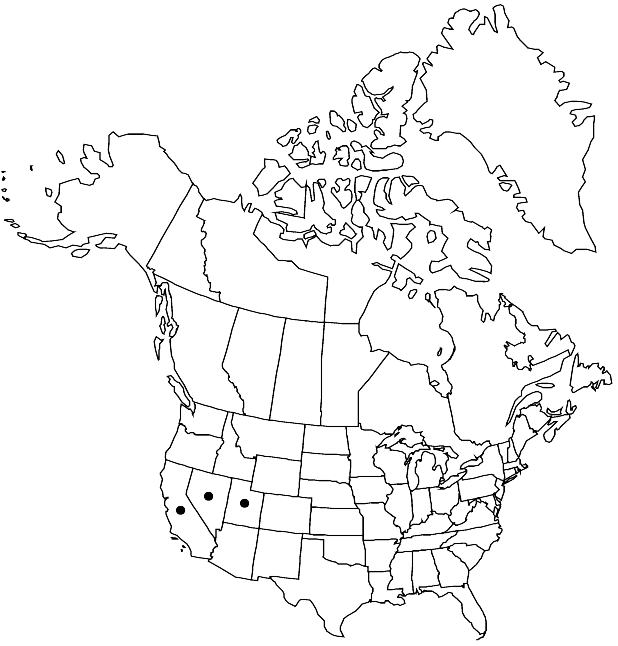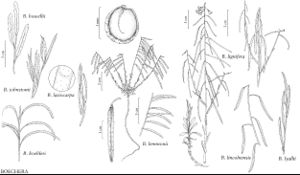Boechera lincolnensis
Harvard Pap. Bot. 11: 71. 2006.
Perennials; long-lived; sexual; caudex woody. Stems usually 1 per caudex branch, arising from center of leaf tuft, elevated above ground surface on woody base, 2–4.2 dm, densely pubescent proximally, trichomes short-stalked, 3–6-rayed, 0.1–0.5 mm, similarly pubescent distally. Basal leaves: blade linear or linear-oblanceolate, 1–2 mm wide, margins entire, rarely ciliate near petiole base, trichomes (simple), to 1 mm, surfaces densely pubescent, trichomes short-stalked, 3–8-rayed, 0.1–0.4 mm. Cauline leaves: 10–25, concealing stem proximally; blade auricles absent or, rarely, to 1 mm, surfaces of distalmost leaves densely pubescent. Racemes 7–15-flowered, usually unbranched. Fruiting pedicels divaricate-ascending, straight to slightly curved proximally, recurved distally, 10–20(–25) mm, pubescent, trichomes appressed, branched. Flowers divaricate-ascending at anthesis; sepals pubescent; petals lavender to purple, 10–12 × 2–3 mm, glabrous or sparsely pubescent (occasionally some trichomes abaxially); pollen ellipsoid. Fruits usually widely pendent to ascending, rarely horizontal, not appressed to rachis, not secund, straight, edges parallel, (3.2–)4–5.5 cm × 2–2.5 mm; valves pubescent throughout; ovules 86–120 per ovary; style 0.1–0.3 mm. Seeds biseriate, 1–1.5 × 0.7–0.9 mm; wing continuous, 0.07–0.12 mm wide. 2n = 14.
Phenology: Flowering Apr–May.
Habitat: Rocky slopes and gravelly soil with sagebrush and other shrubs
Elevation: 1400-1900 m
Distribution

Calif., Nev., Utah.
Discussion
Recent studies suggest that Boechera lincolnensis is a distinct species (see M. D. Windham and I. A. Al-Shehbaz 2006 for detailed comparison).
Selected References
None.
